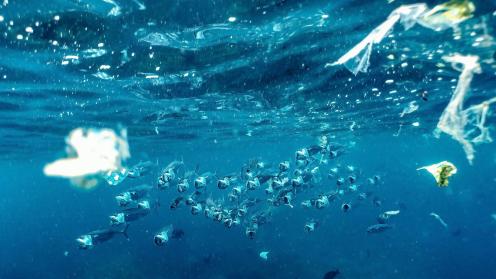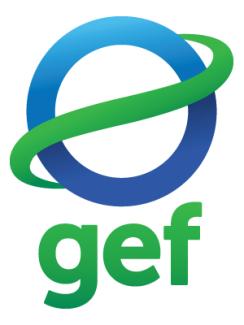About
The Global Environment Facility (GEF) Council Members will consider a new work program of the GEF Trust Fund under GEF’s eighth replenishment cycle, how to streamline the GEF project cycle, and possible actions to support the new agreement on conservation and sustainable use of marine biological diversity of Areas Beyond National Jurisdiction (BBNJ).
Final report
Summary report 5–9 February 2024
All coverage
As the triple crisis of climate change, biodiversity loss, and pollution increasingly poses a threat of existential magnitude for humanity and the planet, adequate, catalytic financing to promote transformation change for sustainable development is considered more important than ever before. The role of the Global Environment Facility (GEF), a large multilateral environmental fund that acts as the financial mechanism of several critical environmental conventions, is more important than ever. GEF seeks to achieve its catalytic function by supporting country-driven sustainable development initiatives around the world, with the primary objective being to generate significant global environmental benefits.
The 66th meeting of the GEF’s chief governing body, the Council, had a packed agenda. It considered and approved a new work program of the GEF Trust Fund under GEF’s eighth replenishment cycle (GEF-8) - the second largest in GEF history. The work program, covering climate, biodiversity, land degradation, international waters, and chemicals and waste focal areas, totals USD 916.1 million, and is expected to generate USD 7.53 billion in co-financing. It also brings GEF-8 programming to almost 50% at the 38% timeline of the 8th cycle.
The Council also discussed initial guidelines for funding enabling and ratification support projects for the Agreement under the United Nations Convention on the Law of the Sea on the conservation and sustainable use of marine biological diversity of Areas Beyond National Jurisdiction (BBNJ). The BBNJ Agreement, opened for signature on 20 September 2023, identifies the GEF Trust Fund as part of its financial mechanism.
The Council also discussed, among others:
- streamlining the GEF project cycle;
- tracking and measuring socioeconomic co-benefits from GEF investments;
- identifying a risk appetite for GEF investments;
- evaluating GEF support to climate information and early warning systems and management response;
- evaluating community-based approaches at the GEF; and
- gap analyses, requested as part of the GEF-8 Policy Recommendations, of (a) GEF funded activity and engagement in fragility, conflict, and violence-affected states (FCS); and (b) GEF policies and key social inclusion issues.
The Council, the GEF’s main governing body, comprises 32 members appointed by constituencies of GEF member countries (14 from developed countries, 16 from developing countries, and two from economies in transition). Council members rotate at different intervals determined by each constituency. It meets twice annually to develop, adopt, and evaluate the operational policies and programs of the multilateral fund and the activities it finances around the world. It also reviews and approves the work program (projects submitted for approval), making decisions by consensus.
The Council also met as the Council for the Least Developed Countries Fund (LDCF) and Special Climate Change Funds (SCCF), and at this session sat for the first time as the Council for the Global Biodiversity Framework Fund (GBFF), the special fund created by the Convention on Biological Diversity (CBD) Conference of Parties to support implementation of the Kunming-Montreal Global Biodiversity Framework (GBF).
The 66th meeting of the Council was held on 5-9 February 2024 in Washington, D.C. A consultation with civil society organizations (CSOs) was held virtually on Friday, 2 February 2024, on the theme “building sustainable, resilient, and inclusive cities” to discuss opportunities to improve the engagement of CSOs in GEF urban sustainability investments.
The Earth Negotiations Bulletin writers for this meeting were Keith Ripley; Dina Hestad, Ph.D.; and María Ovalle. The Digital Editor was Diego Noguera. Video production by Tasha Goldberg and Felipe Ruiz. The Editor was Suzi Malan, Ph.D.
View past and future events
Past event
1st GEF Assembly
Past event
2nd GEF Assembly
Past event
3rd GEF Assembly
Past event
4th GEF Assembly
Past event
40th Meeting of the GEF Council
Past event
41st Meeting of the GEF Council
Past event
42nd Meeting of the GEF Council
Past event
43rd Meeting of the GEF Council
Past event
44th Meeting of the GEF Council
Past event
45th Meeting of the GEF Council
Past event
46th Meeting of the GEF Council and 5th GEF Assembly
Past event
47th Meeting of the GEF Council
Past event
48th Meeting of the GEF Council
Past event
49th Meeting of the GEF Council
Past event
50th Meeting of the GEF Council Meeting
Past event
51st Meeting of the GEF Council Meeting
Past event
52nd Meeting of the GEF Council Meeting
Past event
53rd Meeting of the GEF Council
Past event
54th GEF Council Meeting and 6th GEF Assembly
Past event
55th Meeting of the GEF Council
Past event
56th Meeting of the GEF Council
Past event
57th Meeting of the GEF Council
Past event
58th Meeting of the GEF Council
Past event
59th Meeting of the GEF Council
Past event
GEF Consultations with Civil Society
Past event
60th Meeting of the GEF Council
Past event
GEF CSO Consultations on Youth-led Advocacy and Solutions
Past event
61st Meeting of the GEF Council
Past event
GEF Consultation with Civil Society on Inclusive Microfinance
Past event
62nd Meeting of the GEF Council
Past event
63rd Meeting of the GEF Council
Past event
64th Meeting of the GEF Council
Past event
7th GEF Assembly
Past event
65th Meeting of the GEF Council
Past event
GEF Consultation with Civil Society on the Role of CSOs in Building Sustainable, Resilient, and Inclusive Cities
Past event
66th Meeting of the GEF Council
Past event
GEF Consultation with Civil Society - Conversation on GEF initiatives and approaches to Civil Society
Past event
67th Meeting of the GEF Council
Past event
68th Meeting of the GEF Council
To receive free coverage of global environmental events delivered to your inbox, subscribe to the ENB Update newsletter.

